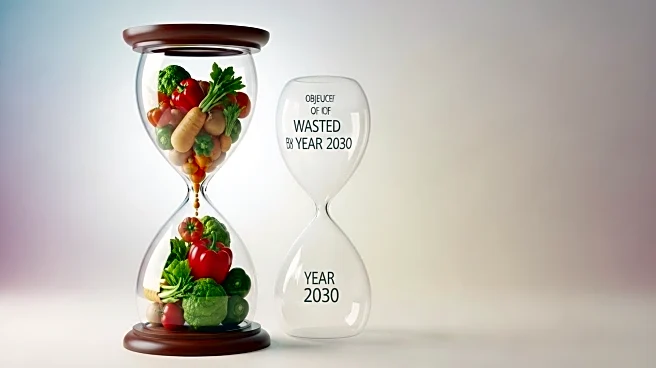What is the story about?
What's Happening?
The European Parliament has voted to implement binding targets for reducing food waste by 2030. The measures require EU member states to cut food waste from processing and manufacturing by 10% and by 30% per capita from retail, foodservice, and households. These targets are based on the average annual waste generated between 2021 and 2023. The initiative aims to address the significant greenhouse gas emissions resulting from food waste, aligning with the UN Sustainable Development Goals.
Why It's Important?
The approval of binding targets marks a critical step in addressing food waste, which contributes to environmental degradation and climate change. By setting clear objectives, the EU aims to accelerate waste reduction efforts, promoting sustainability and resource efficiency. The measures provide guidance for food businesses and investors, encouraging the adoption of circular solutions and aligning the food sector with EU climate goals.
Beyond the Headlines
Despite the positive step, some stakeholders, like Zero Waste Europe, argue that the measures are insufficient to meet the ambitious UN goals. The initiative highlights the ongoing challenges in achieving significant reductions in food waste and the need for more decisive action to fully align with climate objectives.


















